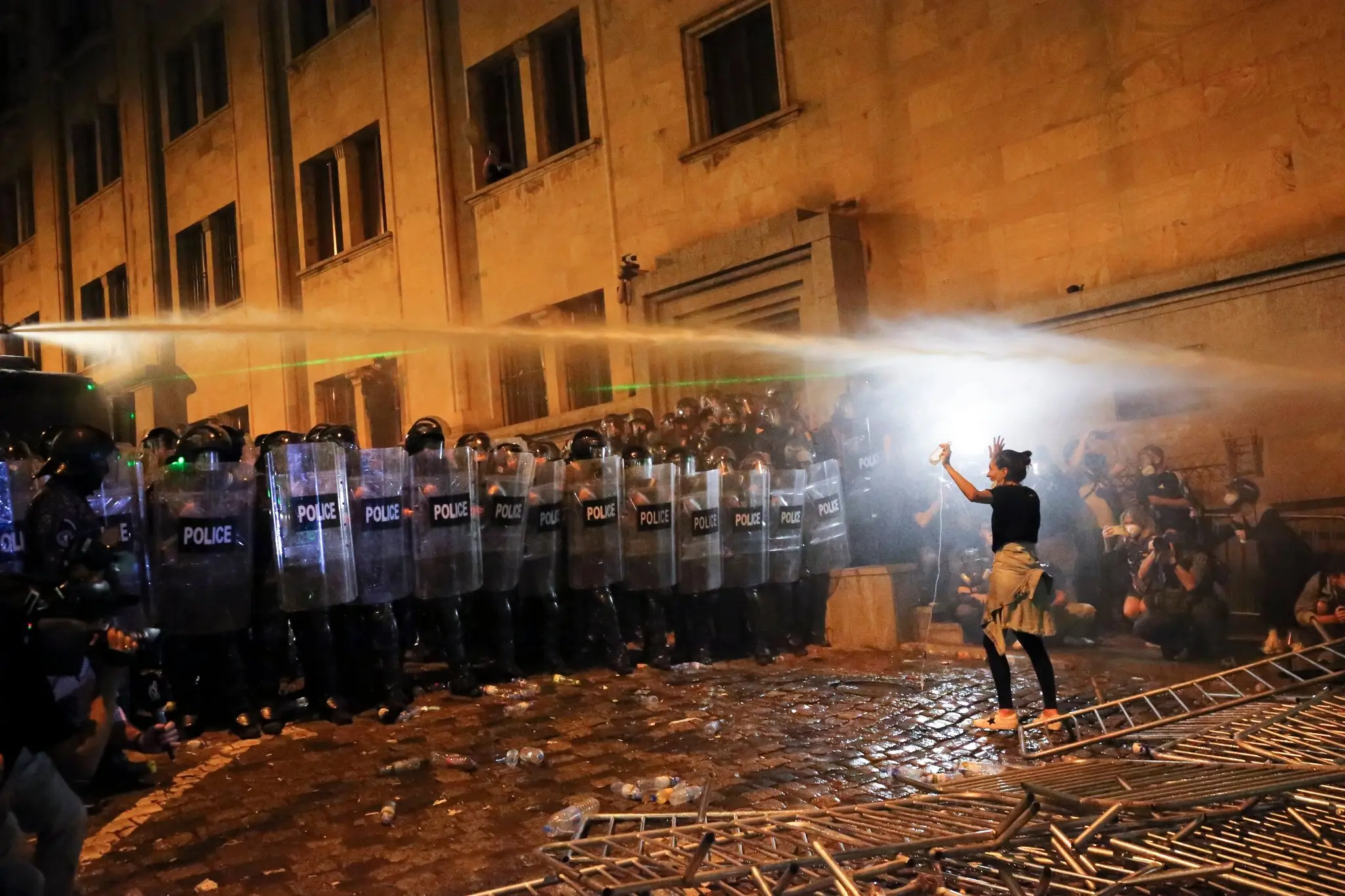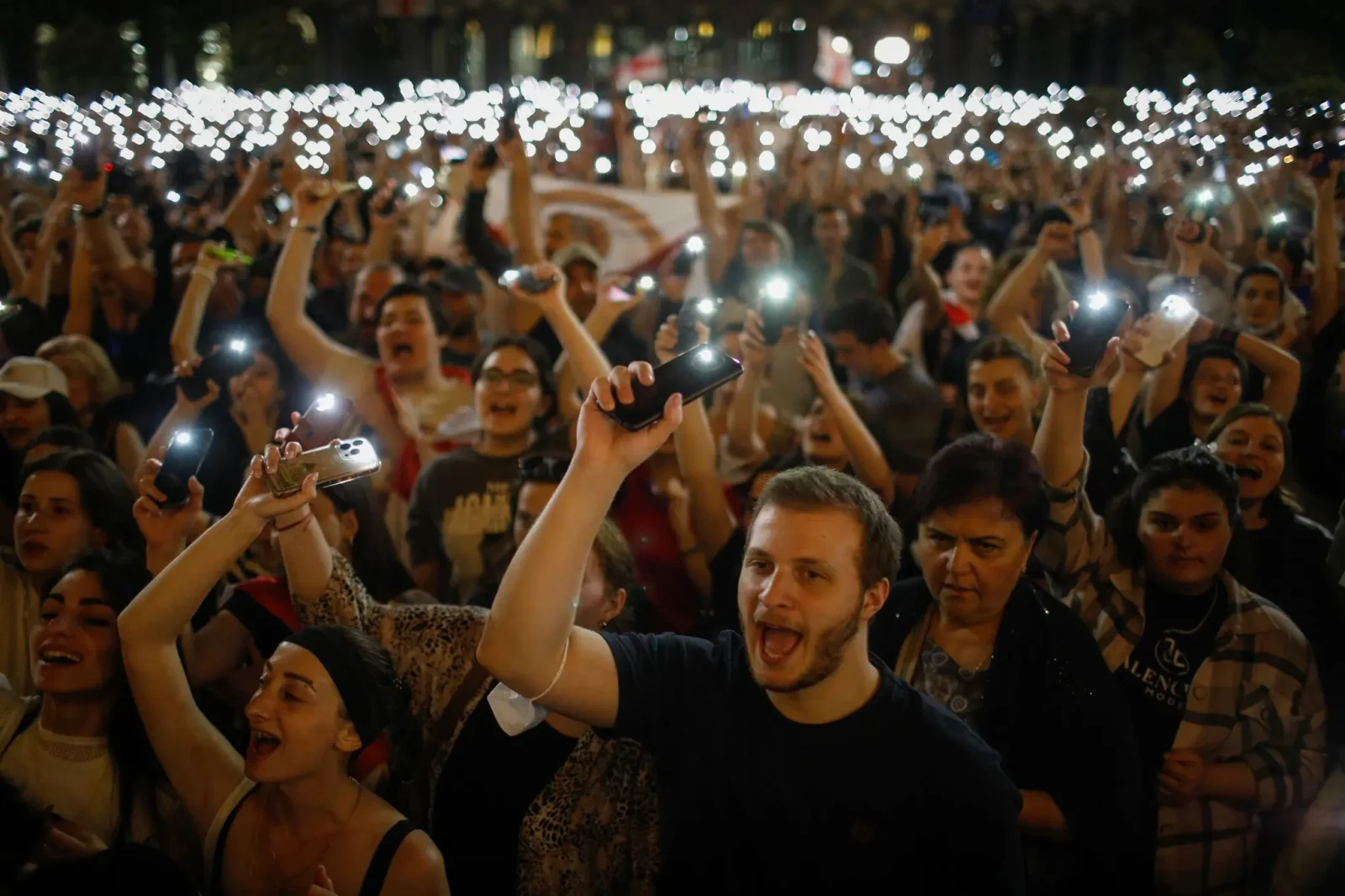Protests surge in Georgia amidst contentious legislation proposed by Parliament, sparking intense clashes between security forces and demonstrators in the nation’s capital.
Tbilisi has become the focal point of unrest as opposition mounts against a bill advanced by the ruling party, Georgian Dream.
The legislation, passed through Parliament amid heated debate, has drawn widespread condemnation from the pro-Western opposition and garnered increasing dissent on the streets.
Critics fear the bill, dubbed by protesters as “the Russian law,” could potentially curtail dissenting voices and impede Georgia’s aspirations to align with the European Union.
Clashes and Criticism as Georgian Dream Advances Contentious Legislation, Fueling Democracy Concerns

Similar to a controversial law enacted in Russia in 2012, the proposed Georgian law mandates that NGOs and media outlets receiving over 20 percent of their funding from foreign sources register as entities representing foreign interests.
Such organizations would be required to submit annual financial reports, with penalties for non-compliance.
The bill’s proponents argue that it aims to enhance transparency regarding foreign funding, citing parallels to legislation in Western democracies, including a 1938 American law. However, opponents view it as a veiled attempt to align Georgia more closely with Moscow’s interests.

In response to escalating protests, Georgian security forces employed water cannons, tear gas, and pepper spray to disperse demonstrators, resulting in injuries and hospitalizations on both sides.
International criticism has mounted, with European and US officials expressing concerns over the bill’s implications for Georgia’s democratic credentials and EU aspirations.
Despite criticism and calls for withdrawal from UN human rights chief Volker Türk, the ruling party remains resolute in its push for the legislation.
President Salome Zourabichvili, while holding a largely ceremonial role, has emerged as a vocal critic of Georgian Dream, signaling potential political tensions within the government.

As tensions persist and protests continue to swell, Georgia finds itself at a crossroads, grappling with the balance between transparency, democracy, and geopolitical alignment amidst domestic unrest and international scrutiny.







Leave a Reply